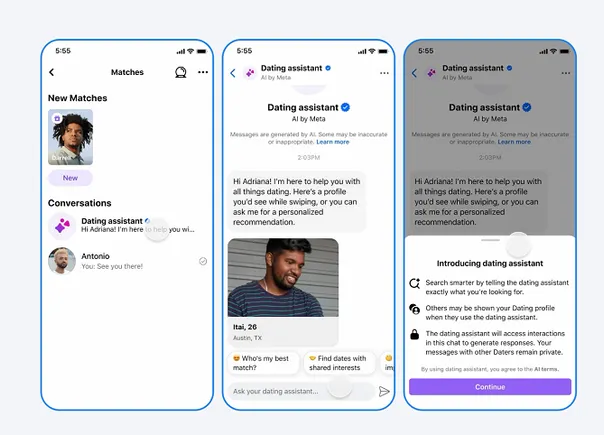Mastering Agency Management: Strategies for Accelerated Growth
As the digital marketing industry continues to evolve, mastering the art of agency leadership can significantly accelerate growth and ensure long-term success. Let’s explore key competencies for agency leaders, the various agency leadership roles within a digital marketing agency,...

As the digital marketing industry continues to evolve, mastering the art of agency leadership can significantly accelerate growth and ensure long-term success.
Let’s explore key competencies for agency leaders, the various agency leadership roles within a digital marketing agency, and actionable tips for agency founders and C-level executives to lead their teams effectively.
What Is Agency Leadership?
Agency leadership is basically about guiding the team, making strategic, well-thought-out, and proactive decisions, besides leading the agency toward its long-term goals.
If you want to be an effective leader, you should be ready to influence your agency’s success and direction. With the U.S. investing approximately $166 billion annually in leadership development programs, the importance of nurturing effective agency leadership cannot be overstated. When you set a clear vision, promote nurturing collaborations, and lead with confidence and care, you can build a thriving business that can truly stand out.
Strong agency leadership not only motivates employees but also enhances productivity and fosters innovation. When you improve your agency leadership skills, your agency will be able to adapt to market changes and maintain a competitive edge.
Last but definitely not least, having effective agency leadership will help you improve employee satisfaction and ultimately retention rates, leading to a more stable and successful agency culture.
Essential Competencies of a Marketing Agency Leader
To be sure that you are great at leading your agency, you should have a balanced blend of visionary thinking, strategic planning, effective communication (including listening to your team members!), strong decision-making abilities, and adaptability to changes and trends.
“Leadership doesn’t come from above.”
“Responsibility, integrity, vision”
“It’s not just about you [the leader], its about them, the team.”
These are the key points we found valuable for understanding what leadership is. We’ll dive deeper into what makes a successful and influential digital agency leader, but before that, we suggest checking out this video.
Visionary Thinking
A great agency leader must have the ability to envision the future of their agency, which includes:
setting long-term goals, identifying growth opportunities, anticipating market trends.Visionary thinking allows you to stay ahead of the competition among digital agencies by detecting newborn trends and guiding your team toward sustainable success.
Strategic Planning
If you are a successful agency leader, it means that you are successful in:
setting clear objectives, creating actionable plans, continuously monitoring progress.With the help of your effective strategic planning efforts, you can align the team’s efforts with your agency’s goals and ensure that everyone is working towards the same vision.
Communication Skills
You should be able to share your vision, expectations, and feedback with team members in the best possible way to be sure that you are always on the same page and targeting the same level of success.
You can foster a collaborative environment through open and clear communication where everyone feels heard and valued, leading to higher productivity and morale. (Say goodbye to micromanagement and hours-long monologue-style meetings.)
Also, you should be accessible and maintain open lines of communication. Regarding that, Deloitte’s Core Beliefs and Culture report demonstrates that employees rank intangible elements such as open and honest communications (50%) and access to management/leadership (47%) highest.
Decision-Making Abilities
Digital agency executives must possess strong decision-making abilities, such as:
evaluating various options, considering the potential outcomes, making informed choices that benefit the agency.Such decision-making skills help you navigate challenges and seize opportunities effectively in your agency leadership journey.
Adaptability
Every other year, there can be a new rising star in marketing, be it influencer or AI marketing recently! So, successful agency leaders must be adaptable instead of following their old rule books for decades.
You should be ready to pivot strategies and embrace new technologies and methodologies. This kind of flexibility will ensure that the agency remains competitive and relevant.
Digital Marketing Agency Leadership Roles
Without understanding the various agency leadership roles within an agency, it won’t be very possible to structure a leadership team effectively.
Let’s explore the different types of leadership roles typically found in an agency:
Agency Owners
Agency owners are responsible for the agency’s overall vision and direction. They set long-term goals, oversee the agency’s operations, and ensure that the team is aligned with the agency’s mission and values.
Agency Executives
Agency executives, such as the CEO, COO, and CFO, play critical roles in managing different aspects of the agency. They are involved in strategic planning, decision-making, and ensuring the financial health of the agency. Their agency leadership is essential for the smooth functioning and growth of the agency.
Team Leaders
Building an effective digital marketing agency team with great team leaders is fundamental to executing the agency’s vision and achieving its goals.
Team leaders are responsible for managing specific departments or projects within the agency. They lead their team members, provide guidance, and ensure that projects are completed successfully.
Agency Leadership Tips for Agency Founders and C-Levels
Elevating your agency-leadership game can transform your agency’s growth trajectory.
Here’s what you need:
Fostering a Positive Work Culture
You should encourage open communication in the agency, recognize and reward all achievements (small or big), and provide opportunities for professional growth, such as drawing a career path for every team member.
A supportive work environment boosts productivity and fosters loyalty among team members as it builds trust. This is why you should have feedback channels, such as suggestion boxes and regular team meetings, to ensure employees feel heard and valued.
Another key point to consider regarding a positive work culture is promoting diversity and inclusivity within the workplace. This way, you can ensure that every and each of your team members is always heard and feels safe.
You should also avoid role ambiguity by clearly defining your job roles and expectations. Role ambiguity can lead to confusion, stress, and decreased productivity. Ensure that each team member knows their responsibilities and how they can contribute to the agency’s goals.
Here’s a brief YouTube video made by a leadership coach, Anne Koopmann, summarizing how to create a positive work culture with 8 tips:
Promoting Employee Well-Being and Self-Care
Ensuring the well-being and self-care of your employees is crucial for maintaining a committed workforce. In 2024, employees prioritize workplaces that care about their needs. If you neglect this aspect, employee retention will suffer. However, it’s never too late to start! Here’s what you can do:
Encourage a healthy work-life balance through flexible working hours and remote work options. Allow employees to take breaks, use their vacation time, and avoid regular overtime to prevent burnout. Provide mental health resources such as counseling services, stress management workshops, and access to mental health professionals. Create a supportive environment where employees feel comfortable discussing mental health issues to improve their overall well-being. Adopt compassionate leadership practices by being aware of your employees’ needs, showing empathy, and providing support during challenging times. Regular check-ins, words of encouragement, and understanding of personal issues can reduce stress and increase job satisfaction. Promote physical health by providing gym memberships, organizing fitness challenges, or offering wellness programs like yoga and meditation. Healthy employees are generally more energetic and productive, boosting morale and reducing absenteeism.Prioritizing Client Relationships
Strong client relationships are the foundation of a successful agency, obviously.
You should focus on building trust and delivering exceptional service to your clients. When they are satisfied, they will continue to repeat business and refer your agency to others, helping you grow your marketing agency.
By regularly communicating with clients, understanding their needs, and exceeding their expectations, you can lead to long-term partnerships and save yourself from the financial and stressful burden of getting clients for agency. Additionally, incorporating client feedback into your processes can improve service delivery and client satisfaction.
Investing in Professional Development
You should provide training and development opportunities for your team. The more they focus on improving their skills and knowledge, the more you benefit from them for the sake of your agency!
This not only improves the quality of work but also shows your team members that you value their growth. Offering structured mentorship programs and workshops can help employees advance in their careers, making them more engaged and productive.
When you invest in employee development, you’ll contribute to the overall success of the agency, not only as employees will be well-equipped but also are more likely to stay loyal and committed.
Embracing Innovation
When you encourage your team to experiment with new strategies and tools, and be willing to invest in innovative solutions, you’ll save your agency’s position in the competition.
Embracing a culture of continuous improvement and being proactive in adopting new technologies can position your agency as a leader in the market. You should highlight innovation in your agency’s culture to attract top talent who is eager to work in a forward-thinking environment.
Being recognized as one of the best digital marketing companies often hinges on your ability to innovate and lead effectively!
Leading by Example
As an agency leader, your actions set the tone for your team. So, you should demonstrate integrity, accountability, and dedication in your work. Leading by example inspires your team members to follow suit and contributes to a strong, cohesive agency culture.
When you lead by example, you inspire your team members to follow suit. They see the standards you set and are more likely to emulate them, fostering a work environment where everyone strives for excellence. This approach contributes to a strong, cohesive agency culture where values like integrity, accountability, and dedication are ingrained in everyday operations. Such a culture not only enhances team performance but also attracts clients who appreciate working with a principled and reliable agency.
Concluding Remarks
Mastering the above-mentioned aspects of agency leadership and leveraging the tips for successful agency leadership can take your agency’s growth to the next level.
Whether you’re looking to expand your marketing agency, build a highly efficient digital marketing team, or become one of the top digital marketing firms in the industry, strong leadership is your golden key to success.
With great leadership, you can confidently navigate challenges, seize new opportunities, and drive sustained success. Set a clear vision, motivate your team, and foster a dynamic, innovative environment that pushes your agency forward.
Step up, lead with passion, and watch your agency reach new heights.

 Fransebas
Fransebas 










![8 Data-Backed Recommendations for Social Media Marketers in 2022 [Insights from 300+ Professionals]](https://blog.hubspot.com/hubfs/a%20consumer%20looks%20at%20a%20social%20media%20marketing%20campaign%20on%20their%20smartphone.jpg#keepProtocol)

![Does Your Company Need An Employee Referral Program? [Examples + Best Practices]](https://blog.hubspot.com/hubfs/interview-applicant-referred-by-employee%20%281%29.jpg#keepProtocol)



















